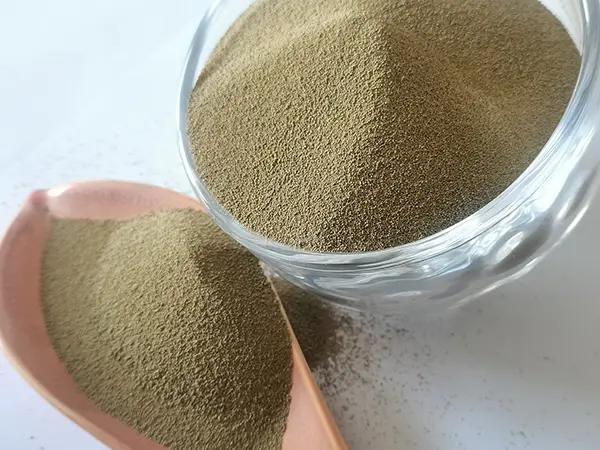Understanding Sand Casting and Its Suppliers A Comprehensive Guide
Sand casting is a widely utilized manufacturing process that involves pouring molten metal into a sand mold to create intricate metal parts. This method is appreciated for its versatility, efficiency, and cost-effectiveness, making it a go-to choice in various industries, including automotive, aerospace, and heavy machinery. Understanding sand casting suppliers is crucial for businesses looking to utilize this method. This article explores key aspects of sand casting and the role of suppliers in this process.
What is Sand Casting?
Sand casting is the process of creating metal castings by pouring molten metal into a mold made from a sand mixture. The sand is typically combined with a binding agent, which holds the shape of the mold when the metal is poured in. The main steps of the sand casting process are
1. Pattern Creation A pattern, often made of wood, metal, or plastic, is created to form the cavity in which the molten metal will be poured. Patterns can be either permanent or temporary, depending on the production needs.
2. Mold Making The sand mixture is packed around the pattern to create a mold. This mold comprises two halves, known as the cope and drag, which are pressed together to hold the shape printed by the pattern.
3. Metal Pouring Once the mold is assembled, molten metal is poured into the cavity created by the pattern. After the metal cools and solidifies, the mold is broken away to reveal the casting.
4. Finishing The final step involves removing any excess material, smoothing rough edges, and conducting inspections to ensure quality standards are met.
Advantages of Sand Casting
One of the main advantages of sand casting is its adaptability. Sand casting can be used for a wide variety of metals, including aluminum, iron, and bronze. This flexibility allows manufacturers to create everything from small components to large industrial parts with intricate designs. Additionally, the sand casting process is relatively low-cost compared to other casting methods, making it an attractive option for both small-scale and large-scale production.
Another significant benefit is the ability to produce complex shapes and geometries that might be challenging or costly to achieve with other manufacturing techniques. The craft of sand casting also permits the use of recycled materials, contributing to sustainability in manufacturing.
The Role of Sand Casting Suppliers
Sand casting suppliers play a pivotal role in ensuring the success of the casting process
. They provide essential services and materials, includingsand casting supplier

- Raw Materials Suppliers offer high-quality sand, binders, and additives necessary for creating durable and effective molds. The quality of these materials directly impacts the quality of the final castings.
- Equipment and Tools Suppliers may also provide specialized equipment necessary for the sand casting process, such as pouring systems, melting furnaces, and trimming tools.
- Expertise and Guidance Many suppliers offer technical support and consulting services to help manufacturers optimize their sand casting processes. This expertise can be invaluable when selecting materials, designing patterns, and troubleshooting issues that may arise during production.
- Rapid Prototyping Some suppliers specialize in rapid prototyping, allowing manufacturers to quickly produce prototypes for testing and evaluation before moving on to full-scale production.
Choosing the Right Supplier
When selecting a sand casting supplier, it's essential to consider several factors
1. Experience and Reputation Look for suppliers with a proven track record in sand casting. Check customer reviews and testimonials to gauge their reliability and quality of service.
2. Quality Assurance Ensure that the supplier follows strict quality control measures to maintain high standards in their materials and services.
3. Customization Capabilities The ability to customize services and materials to meet specific project requirements can be a significant advantage.
4. Lead Times and Flexibility Assess the supplier's lead times for materials and production to ensure they align with your project timelines.
5. Technical Support A good supplier should be able to provide ongoing support and advice throughout the casting process.
Conclusion
Sand casting is a valuable manufacturing method that offers numerous advantages for producing metal parts. Understanding the role of sand casting suppliers is crucial for businesses looking to leverage this process effectively. By carefully selecting a supplier based on experience, quality, customization, and support, manufacturers can enhance their production capabilities and achieve superior quality in their castings. As industries continue to evolve, the importance of reliable sand casting suppliers will remain pivotal in driving innovation and efficiency in metal manufacturing.
Post time:Jan . 02, 2025 17:40
Next:Tolerâncias de fundição em areia
